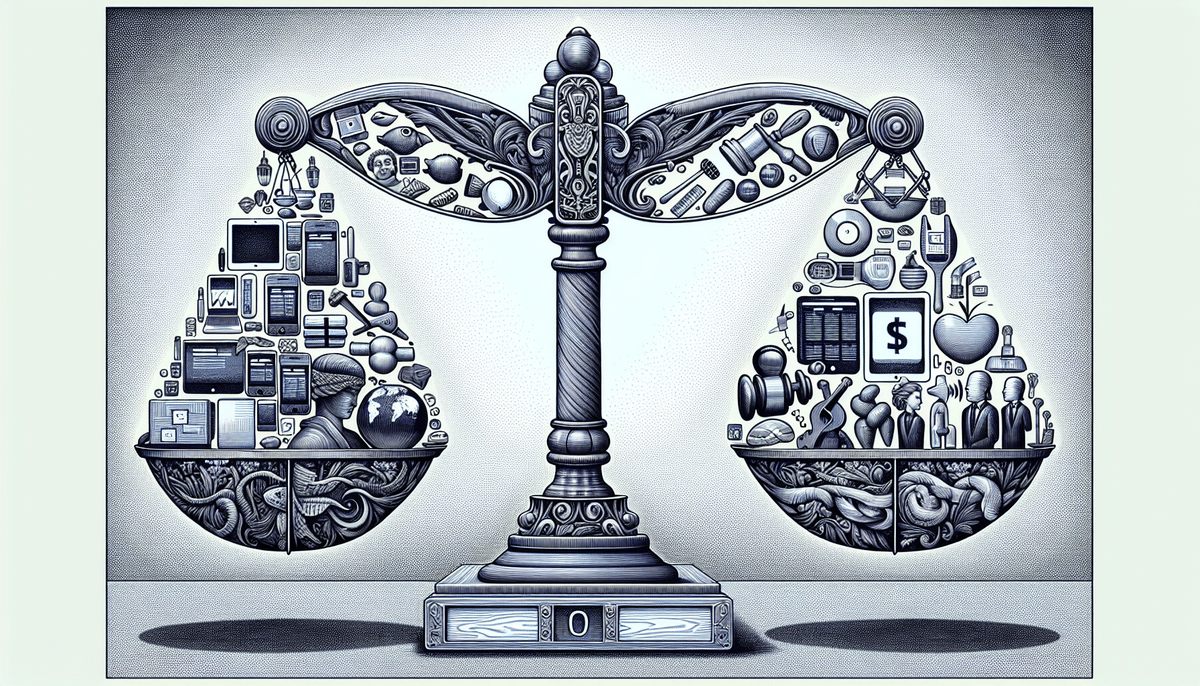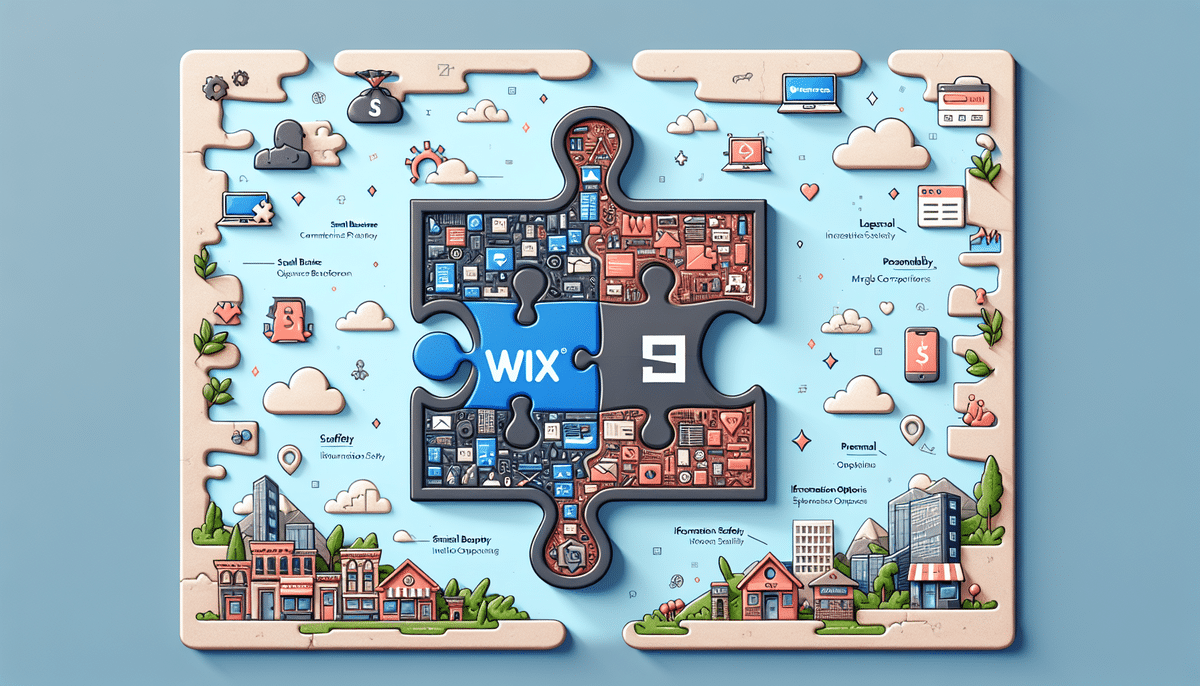Introduction to eCommerce Platforms
E-commerce continues to experience exponential growth, with online sales projected to surpass $6.5 trillion globally by 2024, according to Statista. Selecting the right eCommerce platform is crucial for establishing a successful online presence. This article compares two popular platforms, eBay and Wix, to help you determine which one aligns best with your business needs.
eBay vs Wix: Features and Capabilities
eBay is one of the world's largest online marketplaces, initially launched in 1995 as an auction site. It boasts over 180 million active buyers, providing sellers with access to a vast and diverse customer base. eBay is renowned for its competitive pricing and seller-friendly policies.
Wix, founded in 2006, is primarily a website builder that offers comprehensive eCommerce capabilities. With its intuitive drag-and-drop editor, Wix allows users to create customized online stores tailored to their brand's aesthetic and functional requirements. Ideal for small businesses and individuals, Wix provides greater control over website design and user experience.
Pros and Cons of eBay and Wix
eBay Pros:
- Massive User Base: Access to millions of active buyers increases the potential for quick sales.
- Competitive Fees: eBay's fee structure is generally lower compared to some other eCommerce platforms.
- Seller Protection: Comprehensive policies protect sellers from fraudulent transactions and chargebacks.
- Global Reach: Ability to sell to customers worldwide without the need for extensive international marketing.
eBay Cons:
- Strict Policies: eBay enforces stringent rules on shipping, returns, and customer service, limiting seller flexibility.
- High Competition: The platform's vast number of sellers makes it challenging to stand out and maintain competitive pricing.
- Limited Customization: Sellers have fewer options to customize their storefronts compared to dedicated website builders.
- Dependence on eBay's Search Algorithm: Optimizing listings for visibility can be complex due to eBay's proprietary search algorithms.
Wix Pros:
- User-Friendly Design: Drag-and-drop editor allows for easy website creation without coding expertise.
- Extensive Customization: Wide range of templates and design tools enable unique and branded storefronts.
- Comprehensive eCommerce Features: Integrated payment processing, customer account management, and marketing tools.
- Excellent Customer Support: Responsive support team assists users with technical and operational queries.
Wix Cons:
- Additional Fees: Some payment processors incur extra charges, potentially increasing operational costs.
- Limited Advanced eCommerce Features: Lacks functionalities like automated tax calculations and multi-channel selling out of the box.
- SEO Limitations: Basic SEO tools may not be sufficient for businesses aiming for higher search engine rankings.
- Performance Constraints: Managing high traffic volumes may require upgrading to more expensive plans.
User Experience and Setup
Both eBay and Wix prioritize user-friendliness, but their approaches differ. eBay simplifies the process by allowing sellers to list products directly on its marketplace. Setting up involves creating a seller account, configuring payment options, and listing items, which is straightforward for those selling a variety of products.
Wix offers a more hands-on setup experience through its intuitive website builder. Users can design their online store from scratch or choose from various templates, customize layouts, add products, and integrate payment gateways. With step-by-step guides and a user-friendly interface, Wix caters to individuals and businesses seeking more control over their storefront's look and functionality.
Marketing, SEO, and Analytics
Marketing Features
Wix provides a robust suite of marketing tools, including email marketing, social media integrations, and built-in SEO tools. Its integrated email marketing plugin allows sellers to design and send targeted newsletters and promotional campaigns, enhancing customer engagement and retention.
eBay offers various advertising options, such as sponsored listings and promoted products. These tools help sellers increase visibility within the marketplace, attract more buyers, and boost sales.
SEO Optimization
Wix excels in SEO customization, allowing users to optimize meta tags, URLs, and content structure. Additionally, Wix's dedicated SEO Wiz tool guides users in implementing best practices to improve search engine rankings.
eBay focuses on optimizing product listings by enabling detailed descriptions, high-quality images, and keyword-rich titles. However, since eBay operates within its own ecosystem, broader SEO efforts are limited to enhancing individual listings rather than the entire store.
Analytics and Reporting
Both platforms offer comprehensive analytics tools. Wix includes a dashboard that tracks sales, website traffic, customer behavior, and sales trends. These insights help sellers make data-driven decisions to enhance their store's performance.
eBay provides detailed seller metrics, including sales reports, customer feedback, and performance statistics. These tools help sellers monitor their success, identify areas for improvement, and optimize their strategies accordingly.
Payment Processing and Security
Payment processing is a critical component of any eCommerce platform. eBay primarily utilizes PayPal and managed payments, simplifying the transaction process for both buyers and sellers. eBay charges a flat 10% fee on items sold, exclusive of payment processing fees.
Wix supports multiple payment gateways, including PayPal, Stripe, and Square, providing flexibility to sellers. While Wix offers built-in SSL certification for secure transactions, its transaction fees vary based on the chosen payment processor and the eCommerce plan. Ensuring robust security measures, both platforms protect user data and prevent fraudulent activities.
Shipping and Fulfillment
eBay integrates with major carriers like USPS, FedEx, and UPS, offering sellers a range of shipping options based on product size and weight. Additionally, eBay provides tools like tax and customs calculators to assist sellers in complying with international shipping regulations.
Wix also offers flexible shipping configurations, allowing sellers to set shipping rates, zones, and methods. While Wix does not have specific carrier integrations, it supports third-party shipping apps and provides manual shipping calculators to streamline the fulfillment process.
Pricing and Value
eBay operates on a commission-based model, charging a flat 10% fee on most sales for non-store sellers. For those who sell at higher volumes, eBay offers store subscriptions ranging from $7.95 to $349.95 per month, depending on the level of features and support required.
Wix offers several eCommerce plans starting at $23 per month, with higher tiers providing additional features such as unlimited bandwidth, priority support, and advanced analytics. While Wix charges extra fees for certain payment processors, its range of pricing options accommodates various business sizes and budgets.
Ultimately, the best value depends on the specific needs and scale of your business. eBay may be more cost-effective for sellers focusing on a large number of listings with lower margins, while Wix offers comprehensive features for businesses prioritizing brand customization and advanced store functionalities.
Conclusion: Choosing the Right eCommerce Platform for Your Business
Deciding between eBay and Wix hinges on your business model, goals, and preferences. If you aim to leverage a vast marketplace with a ready customer base and prefer a straightforward selling process, eBay is an excellent choice. Conversely, if you seek greater control over your website's design, branding, and a suite of integrated eCommerce tools, Wix is more suitable.
Consider factors like customization needs, marketing tools, fees, and scalability when making your decision. Evaluating these elements in line with your business objectives will ensure that you choose the platform that best supports your eCommerce success.






















